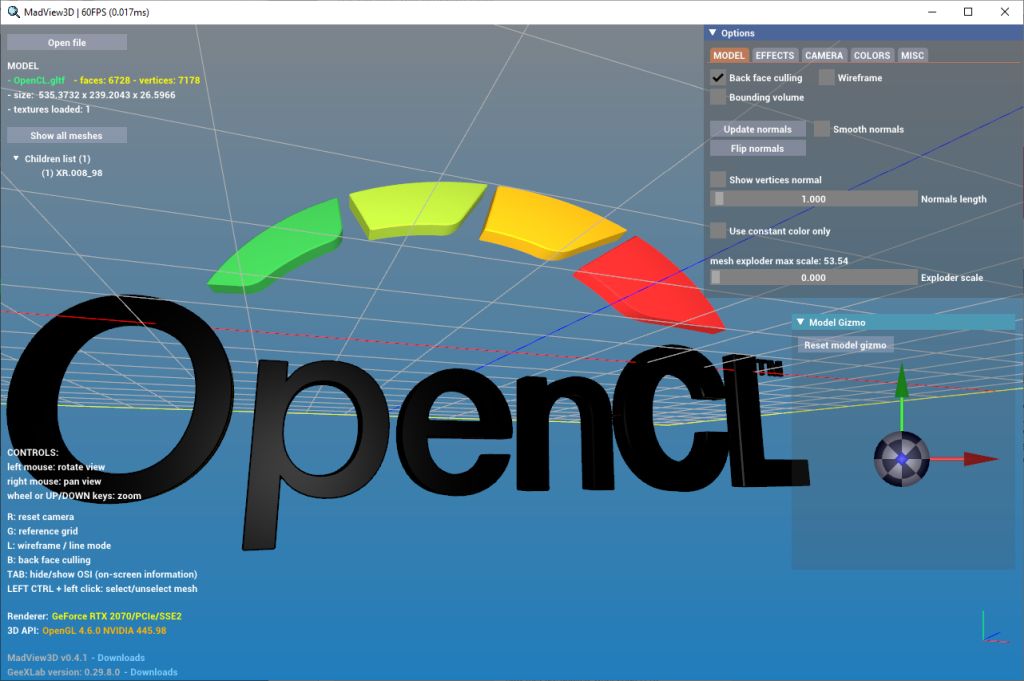
The Khronos Group has unveiled the provisional specifications of OpenCL 3.0.
IWOCL – April 27, 2020 – 6:00 AM GMT – Today, The Khronos® Group, an open consortium of industry-leading companies creating advanced interoperability standards, publicly releases the OpenCL™ 3.0 Provisional Specifications. OpenCL 3.0 realigns the OpenCL roadmap to enable developer-requested functionality to be broadly deployed by hardware vendors, and it significantly increases deployment flexibility by empowering conformant OpenCL implementations to focus on functionality relevant to their target markets. OpenCL 3.0 also integrates subgroup functionality into the core specification, ships with a new OpenCL C 3.0 language specification, uses a new unified specification format, and introduces extensions for asynchronous data copies to enable a new class of embedded processors. The provisional OpenCL 3.0 specifications enable the developer community to provide feedback on GitHub before the specifications and conformance tests are finalized.
To cater to a widening diversity of OpenCL devices, OpenCL 3.0 makes all functionality beyond version 1.2 optional. All OpenCL 1.2 applications will continue to run unchanged on any OpenCL 3.0 device. All OpenCL 2.X features are coherently defined in the new unified specification, and current OpenCL 2.X implementations that upgrade to OpenCL 3.0 can continue to ship with their existing functionality with full backwards compatibility. All OpenCL 2.X API features can be queried, and OpenCL C 3.0 adds macros for querying optional language features.
“OpenCL is the most pervasive, cross-vendor, open standard for low-level heterogeneous parallel programming—widely used by applications, libraries, engines, and compilers that need to reach the widest range of diverse processors,” said Neil Trevett, vice president at NVIDIA, president of the Khronos Group and OpenCL Working Group Chair. “OpenCL 2.X delivers significant functionality, but OpenCL 1.2 has proven itself as the baseline needed by all vendors and markets. OpenCL 3.0 integrates tightly organized optionality into the monolithic 2.2 specification, boosting deployment flexibility that will enable OpenCL to raise the bar on pervasively available functionality in future core specifications.”
For C++ kernel development, the OpenCL Working Group has transitioned from the original OpenCL C++ kernel language, defined in OpenCL 2.2, to the ‘C++ for OpenCL’ community, open-source project supported by Clang. C++ for OpenCL provides compatibility with OpenCL C, enables developers to use most C++17 features in OpenCL kernels, and is compatible with any OpenCL 2.X or OpenCL 3.0 implementation that supports SPIR-V™ ingestion.
The Extended Asynchronous Copy and Asynchronous Work Group Copy Fence extensions released alongside OpenCL 3.0 enable efficient, ordered DMA transactions as first class citizens in OpenCL—ideal for Scratch Pad Memory based devices, which require fine-grained control over buffer allocation. These extensions are the first of significant upcoming advances in OpenCL to enhance support for embedded processors.
To accompany today’s release, the OpenCL Working Group has updated its OpenCL Resource Guide to help computing specialists, developers and researchers of all skill levels effectively harness the power of OpenCL. The OpenCL Working Group will continuously evolve the guide and welcomes any feedback on how it can be improved via GitHub.
Complete press-release is available HERE.
Useful Links:
For the release of this new version, the OpenCL logo has been refreshed a bit and is available in 2D and 3D (glTF format, nice!) here:
Here is the 3D logo in MadView3D:

—
via